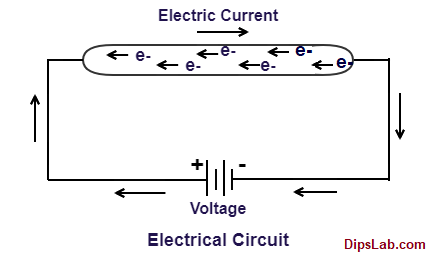
In this post, we are going to learn about the difference between electric energy and electric power.
Both are the crucial terms that you might have heard in an electrical and electronics circuit.
Many of us think both Electrical Energy and Electrical Power are same. But, both are different.
Table of Contents
Difference between Electric Energy and Electric Power
Here, I am comparing in between the electrical energy and electrical power in tubular form.
| # | Content | Electrical Energy | Electrical Power |
| 01 | Definition | In an electrical and electronic circuit, electrical energy is defined as the capacity to do electric work. | Electrical power is defined as the ‘rate of work done per unit charge’ or ‘rate of energy transfer per unit time’. |
| 02 | Representation (by letter) | Electrical energy is denoted by the W or E. | Electrical power is denoted by the P. |
| 03 | Formula | Energy, (W)= (Work*Time) or (Energy*Time) | Power, (P)= (Work/Time) or (Energy/Time) |
| 04 | S.I Unit | The S.I unit of electrical energy is Watt.Sec (Ws) or Joule (J). Also, energy is measured in the other units like ergs and calories. Mostly, the electrical energy (i.e. electricity) is measured in the Kilowatt-hour (kWh). | The S.I unit of electrical power is Watt (W) or Joule/Sec (J/s). Sometimes, power is measured in ergs per second. |
| 05 | Transform | It can easily change into another form of energy (like heat, light, etc). For example, Heater, Electric Bulb. | It can’t change into another form of power. |
| 06 | Function I | Electrical energy can be generated or can be consumed. | Power can’t be generated like energy. |
| 07 | Function II | The generated energy can be stored in future purpose. Battery and Generator are the best examples of an energy store device. | Electric power can’t be stored in the other storable devices. |
Explanation of Electrical Energy and Electrical Power
What is the relation between electrical energy and power?
Here, I am describing simple explanation about the energy and power relation.
Suppose, a DC voltage source is connected through the battery to an electric circuit.
The main function of a battery is to convert chemical energy into electrical energy. And it is able to store electrical energy or electricity.

This electrical energy helps to move electric charge (Q) particles or electric current through a conductor. The electric current always flows from the positive terminal to the negative terminal.
Hence, we can conclude that, energy has the capacity to transfer the charged particle from one place to another.
And power is to measure ‘how to transfer the energy with respect to time?’. So, the basic definition of power is ‘the rate of energy converts or transfer per unit time’.
For example, when we glow 100 W light bulbs for 60 Sec. How much energy would you use?
According to the above formula, electrical energy is calculated as…
Electrical Energy, (W)= (Power*Time)= (100*60)= 6000 Joule
So, here we require 600 joule energy for 100 watt bulb.
Calculation of Electrical Energy and Electrical Power
Electrical Energy Calculation:
From Current, Voltage and Time:
[CP_CALCULATED_FIELDS id=”23″]
From Power and Time:
[CP_CALCULATED_FIELDS id=”66″]
Electrical Power Calculation:
From work done and time:
[CP_CALCULATED_FIELDS id=”25″]
From Energy and Time:
[CP_CALCULATED_FIELDS id=”65″]
Thus, in this post, I have explained the difference between electric energy and electric power.
If you have any queries, you can freely ask through comment section.
Other Related Differences to Read:
Thanks for Reading!1